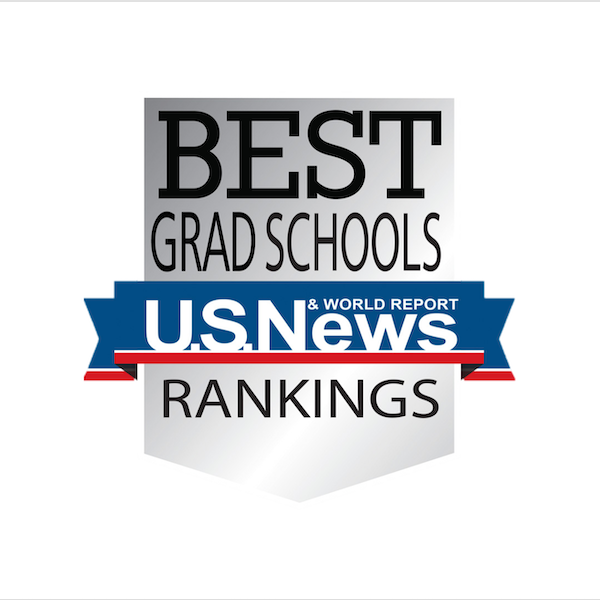Analyzing the 2023-24 US News Full-Time MBA Rankings
The 2023-24 US News MBA rankings have once again captured the business school community's attention, sparking discussions due to methodological changes that caused significant shifts in the standings. In this blog post, we unpack these changes, spotlight the top-ranked business schools, and delve into the emerging critiques and limitations, providing a nuanced perspective on what these rankings mean for prospective MBA students.

School Rankings
The 2023-2024 US News MBA rankings have been released. Here's the list of top business schools:
- Chicago Booth
- Kellogg School
- Wharton
- MIT Sloan
- Harvard Business School
- Tuck, Stanford GSB (tied)
- Ross, Yale SOM (tied)
- NYU Stern
- Columbia Business School, Fuqua, Haas (tied)
While the top three schools have maintained their positions, the rankings of many other prestigious institutions have seen significant shifts, with 84 schools experiencing a change in their rank by at least one spot.
Changes in Methodology
This year's US News MBA rankings have undergone considerable change, emphasizing outcomes over reputation. A substantial 50% of the ranking formula now evaluates institutions based on the successful placement and earnings outcomes of their graduates, a significant increase from the previous 35%. This shift underscores a growing trend: as education costs escalate, the value of education is increasingly measured by tangible outcomes.
"Given the rising emphasis on the results education can deliver, the ranking factor weights for this edition have been adjusted to focus more on outcome measures and less on reputation," US News stated. This change aligns with the understanding that employment and earnings outcomes are pivotal factors for many pursuing further education, particularly in business.
Limitations and Criticisms
Focus on Full-Time Programs
The rankings mainly consider full-time MBA programs, potentially overlooking the needs of those interested in part-time or online options.
Dependence on Deans and Recruiters
The rankings heavily rely on the perceptions of business school deans and recruiters, which may not fully represent student or graduate viewpoints.
Narrow Criteria
The rankings are based on a limited set of factors, such as placement statistics and starting salaries, missing out on other important aspects like diversity, social responsibility, and innovation.
Competition and Pressure
The rankings can foster a competitive environment among business schools, possibly leading to a focus on easily measured metrics rather than genuinely meaningful outcomes.
Outdated View of Business Education
They may perpetuate a narrow view of business education, not entirely aligning with the evolving demands of the business world and society.
Conclusion
The 2023-24 US News MBA rankings have significantly impacted the landscape of business schools. These rankings are a reputable source that can guide your selection process, but they should not be the sole factor in your decision. It is critical to consider your personal and professional objectives, the academic quality of the program, its culture, and the outcomes it offers. Selecting the right MBA program necessitates comprehensive research and reflection, extending beyond rankings. M7A is committed to assisting you in identifying the program that best aligns with your aspirations and values.
Keep reading

How to Prepare for Your Kellogg MBA Interview
Kellogg's MBA interview operates differently than most top business schools. With a "blind" format where interviewers see only your resume, the 30-45 minute conversation focuses on answering one fundamental question: would you strengthen Kellogg's collaborative culture? This guide breaks down what actually gets evaluated, provides sample questions from recent admits, and explains how to frame your accomplishments through a teamwork lens using the STAR method.

The Authenticity Test: When Your Dream Career Story Might Be Sabotaging Your MBA Application
I had a call this week with Sarah (name changed), one of our M7A clients applying to MIT Sloan. She came to our call with two completely different cover letters written. She felt stuck. Version 1 was bold: "I want to start an allergy therapeutics company, and MIT is where I'll make it happen." Version 2 was strategic: "I want to become an investor-operator in biotech VC, building the foundation to eventually launch something of my own." Both were well-written. Both were compelling. But only one would survive what I call The Authenticity Test.

What It Means to Be Under “Further Consideration” at HBS (and How to Turn It Into an Admit)
If you’ve been placed under “Further Consideration” by Harvard Business School, take a breath – you’re still very much in the game. This is HBS’s new version of a waitlist, and while it’s unfamiliar territory for many applicants, it’s also a real opportunity. Here’s what it means, what you can (and can’t) do, and how to use this window to your advantage.

After McKinsey SkillBridge: When an MBA Makes Sense for Veterans
McKinsey’s SkillBridge fellowship helps veterans step into consulting. For some, that’s enough. For others, the next step is an MBA. In this post, we explain why some McKinsey SkillBridge alumni pursue business school, how this compares to Bain and BCG, and how to frame your experience for MBA admissions.